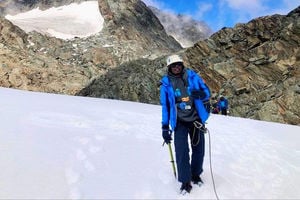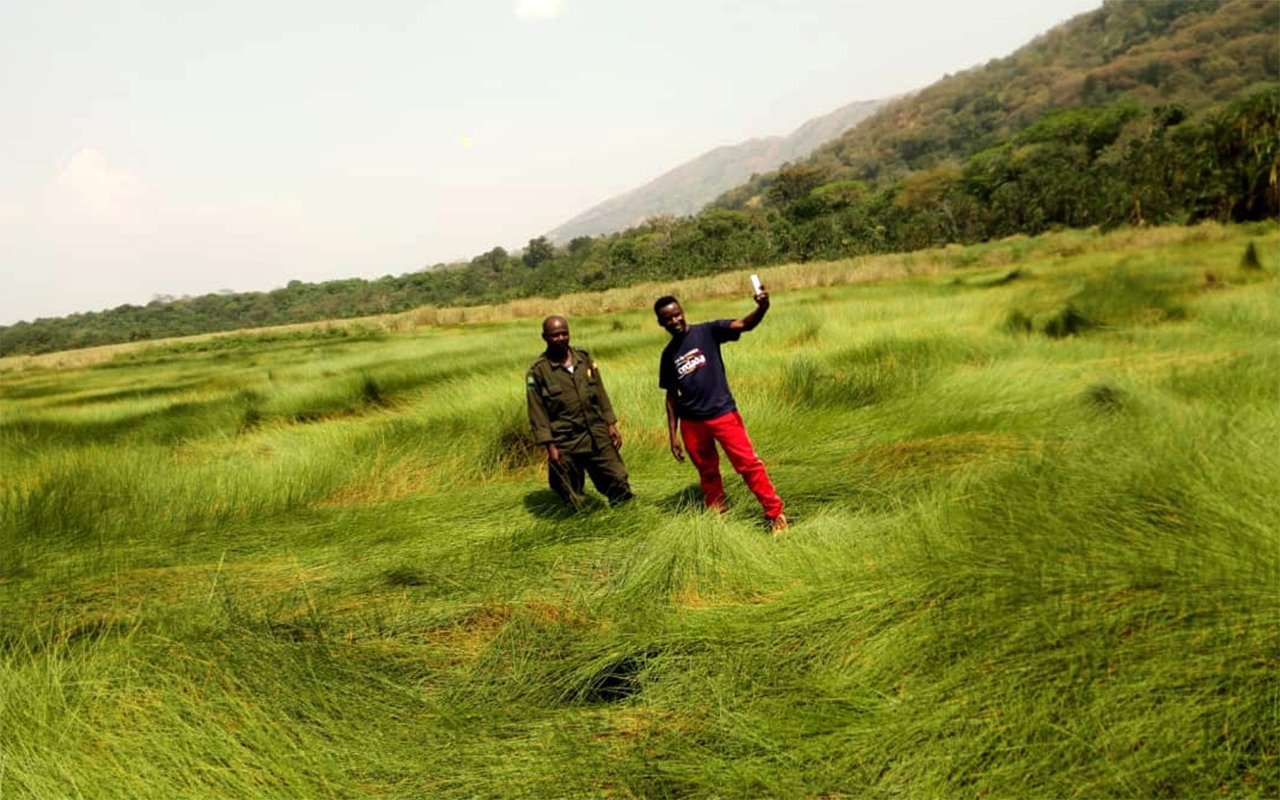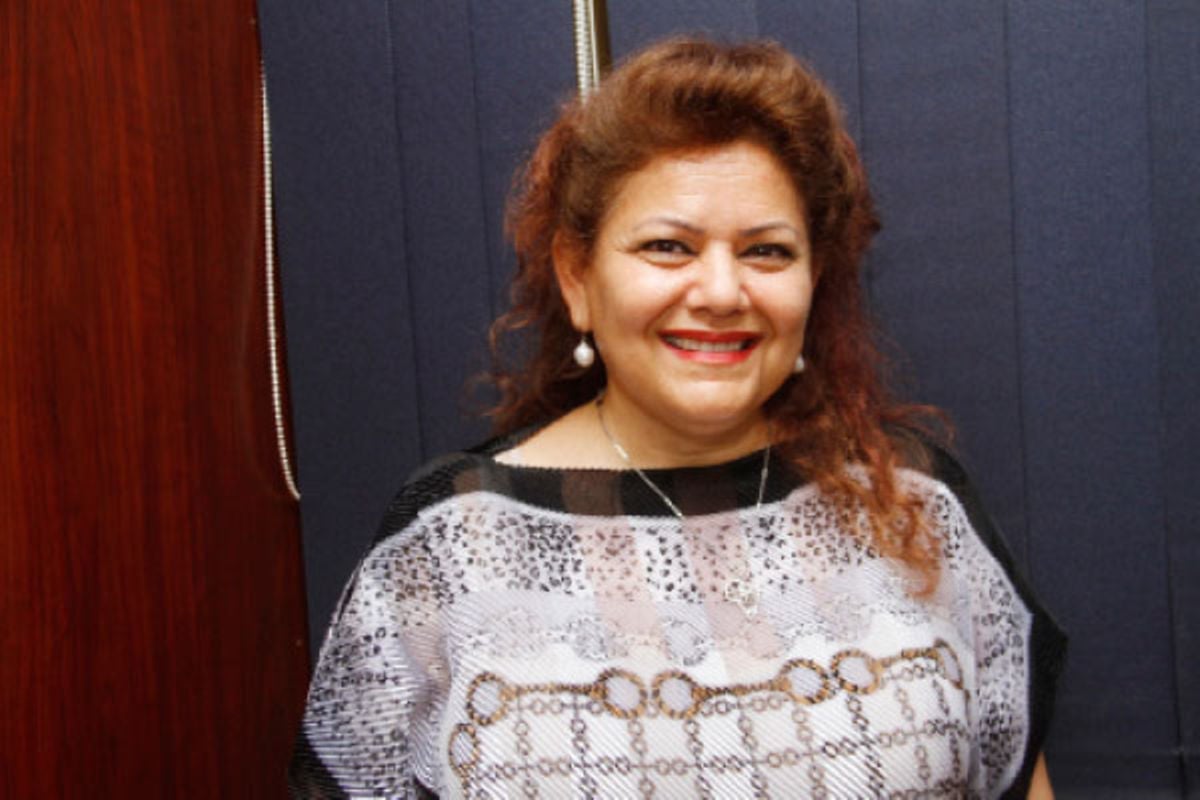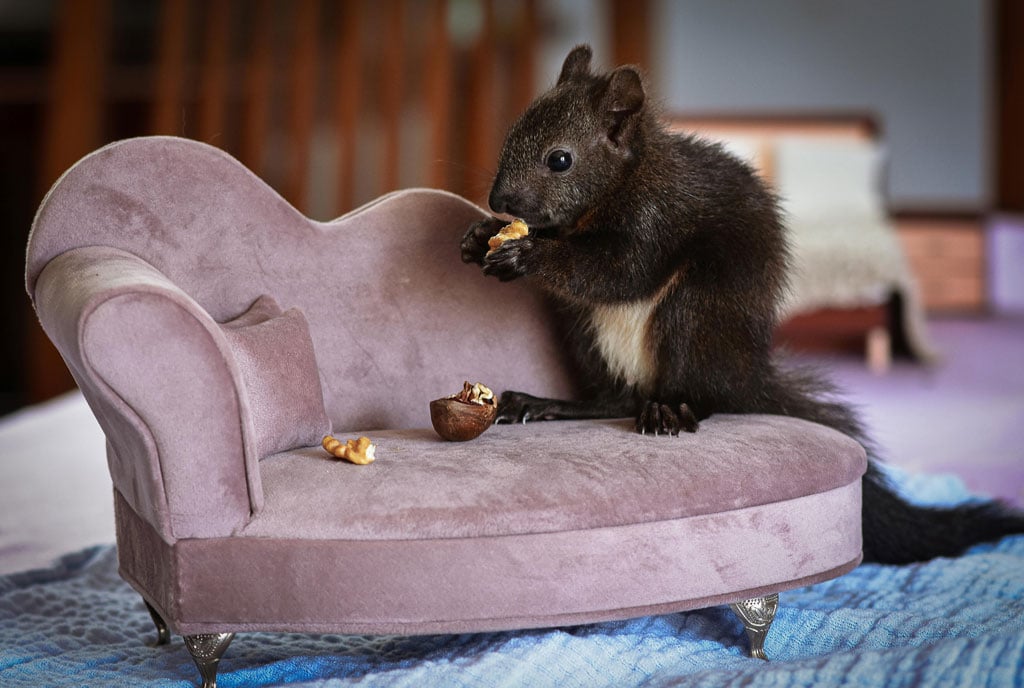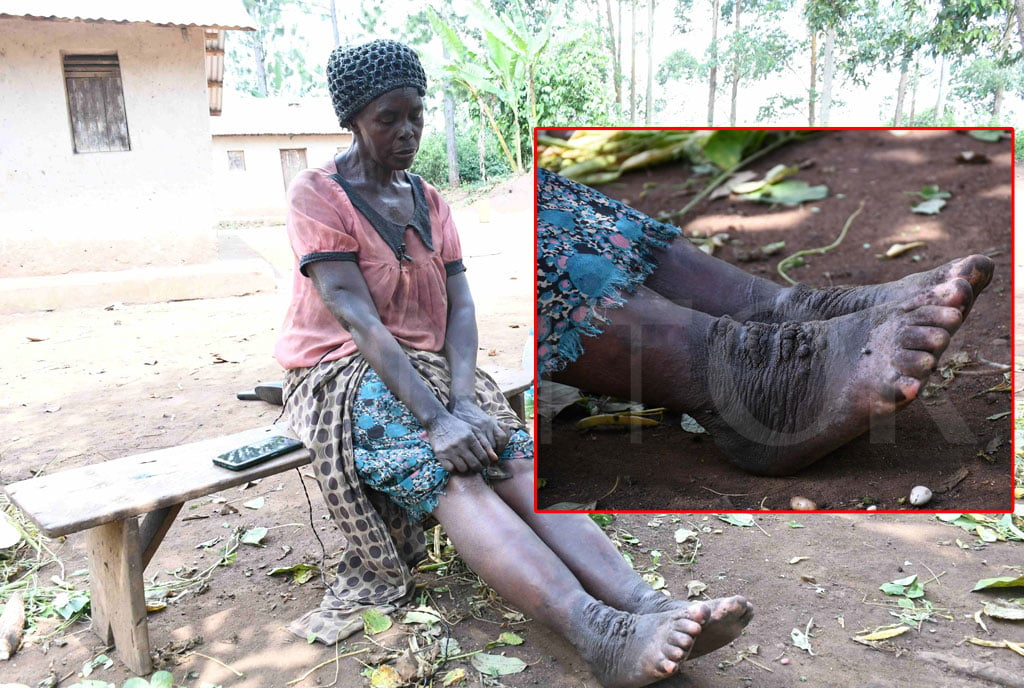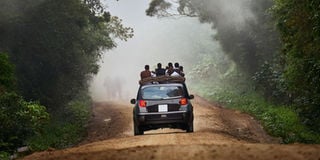
The road to Bwindi is dusty. PHOTO | FIREFLY GENERATED.
To get to Bwindi, you first have to get to either go to Kabale or to Kihihi Town in Kanungu District. While the roads to both towns are in fine condition lately, Kabale is a better choice for many. Kabale lies on the busy highway to Rwanda and DR Congo (through Kisoro further south) and for this reason, buses are constantly flowing through the town at any time of day. Granted, Kihihi is home to Ishasha border crossing into DR Congo but it is a smaller border crossing with less traffic but it is currently closed. Also, Kabale to Bwindi by public transport is shorter compared to Kihihi. It is only 76 kilometres from the Ntungamo junction where the road to Kihihi branches off westwards for at least 90 kilometres to Kihihi.
Having chosen to pass through Kabale Town, choose which bus to use. The choices are endless because, on top of buses that serve Kabale, there are buses that continue to Kisoro Town, Rwanda and DR Congo. If you are a stickler for comfort, you may opt for international bus companies as they tend to be more professional in terms of seat build, convenience in ticket booking and timekeeping. Some of these buses have reclining seats that make them perfect for sleep travel.
There is nothing worth writing home about until you pass Ntungamo Town and start ascending slowly, perpetually into the clouds where Kabale Town is to be found. It takes about eight hours by bus and the fare is between Shs40,000 and Shs70,000 depending on the ticket you buy. Warm clothing is a must on this trip as Kabale is chilly, especially in the mornings.
Before embarking on the long, slow trip to Bwindi, grab one of the giant beef samosas that Kabale restaurateurs have mastered. Plus a cup of milk or such other dairy product. You will need the energy to brave the rocky road up the dark mountains of Rubanda.
Public transport to Bwindi, a trickle, only about three small cars leave Kabale for Bwindi every day because there is barely demand for it. There are only a handful of civilised communities past the Park gate and even those do not have much use for Kabale Town. The believe town life is too defiled. And tourists do not travel public. So, about three Toyota Wishes leave Kabale Town for Bwindi on a given day. Even then the first departs at around 9am and the last at 3pm. Plus, they pack travellers the same way Masaka people pack nsenene for transportation late November every year.
If you do not mind motorcycle rides like me, you opt for a boda-boda. To allay your fears about this venture, riders in Kabale are more cautious than their Kampala counterparts. It is hard to imagine but there must be a subtle cultural rub that makes riders here much slower and relaxed. I was left in shock to find that every single boda-boda I took while in Kabale insisted on overtaking the right way. So, getting a Kabale boda-boda ride to Bwindi is not too reckless.

The journey to the famed forest starts in Kabale and shoots westwards towards Kisoro. After some 10 kilometres or so in flat lands in the cattle corridor of Kabale and Irish potato farms, you reach a section of the highway that has curiously defeated road engineers. A 50-foot section of murram road in the middle of flawless tarmac. It is shaky enough to reject all efforts to tarmac it but is strong enough to allow all manner of traffic to pass on it. The section is called Hamurwa, which loosely translates to ‘island’.
Uphill to Bwindi
As soon as you leave Hamurwa, you start the endless climb towards Bwindi. They say, the higher you go, the cooler it becomes and your fingers are the first to tell you. Which is why it is wise to wear gloves on this adventure.
Turning off the tarmac just before Rubanda Town will be annoying because of how rough the dirt road is. The consolation is that you will be able to see beautiful terraced farms in the hills of Rubanda, valleys filled with green potato and vegetable gardens, and beautiful villages. Soon as you reach areas that are not as fertile, where only tree planting is the best use of land.
Higher and higher you go, barely meeting any other vehicle until you enter the forest, leaving the villages behind. An hour into the ride and you are still climbing hill after hill until the air becomes so thin you become aware of your own breath. As you climb higher into the ranges, you pass the bamboo sections of the forest, famous for harbouring the bush elephants of Bwindi. Arguably the most beautiful part of Bwindi.

The journey to Bwindi is bumpy but on arrival, the serenity the forest offers in the nature ambience is incredible. PHOTO | FIREFLY GENERATED.
Layers of warmth, sooth
One and a half hours later, you arrive at Kiho Gorilla Safari Lodge in the Ruhija sector of the park. The average temperature in Ruhija is 10°C, you must either keep wearing your three sweaters or sit by the fireplace the entire time. The vigorous shaking your body endured on the journey will make you yearn to sit in one place and warm your soul with a glass of strong drink. And when the sun sets, the blackest darkness comes up on the forest like a black tent. Bwindi darkness blinds you. And when you enter your cottage later that night, the silence shocks your system as you slip off slumber land.
When you wake up at 6.45 am, having slept like a baby because of purified air and the good vibrations from the trees and the therapy that your body received from being so close to life itself. Birds chirp as if trying to cheer you up. Even away from a forest like Bwindi, in highly populated areas at least one neighbour down the road will have some chickens and the cock will be heard every dawn.
But in the forest, that effect hits differently. These sounds of nature let you know that you are still alive and well, life is still resilient. Nothing rejuvenates your entire being quite like the forest does.
And when you push the hot water bottles away from your warm body, now containing lukewarm water, your body having sucked all the heat out of them trying to give you a fighting chance against all the coldness of Bwindi, and you get out of the blankets curious to see how this ancient forest looks and feels like at dawn as if you are here for the very first time (it always feels like you are here for the very first time), and you stand by the window, wrapped partly in the drawn curtains, and feel the sheer life coming out of the trees. you sigh and thank God for being such an intricate designer. There are intangible things you feel in nature that you cannot explain with words. Only maybe if you are with your soul mate and both of you are feeling these things and you happen to look at each other. In that short moment of silence, you will describe these feelings to her with just the look in your eyes.
Bwindi touches your soul like nothing else.
